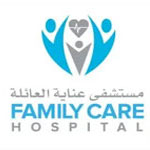Saudi Arabia is a country shrouded in mystery, but as the dominant country of the Middle East Gulf states, both in terms of population and land mass, it has the largest and most developed healthcare system which lends itself to unique career opportunities for doctors and healthcare professionals with an appetite for adventure.
Whilst the public sector provides free healthcare for Saudi Arabian citizens at the point of delivery (primary to tertiary care), the private sector requires cash self payment or insurance policy derived payments to finance healthcare and tends to focus on healthcare services which generate high revenues and profits, such as elective surgery. It provides primary and secondary medical services with limited and selected tertiary care services.
As a truly independent consultancy New Marhaba Travels have been committed to providing both clients and candidates with an unrivalled level of service.
The public healthcare system has three major divisions:
- The Ministry of Health hospitals and clinics - primary to tertiary medical services for all Saudi Arabian citizens).
- The military and police hospitals - Ministry of Defence and Aviation (MODA), National Guard, Security Services - primary to tertiary medical services for members of the armed forces and police and their families.
- The King Faisal Specialist Hospitals and Research Centres - tertiary care.
The health care sector is identified in Vision 2030, the Saudi Arabian government's plan for national economic development and diversification, as a priority sector for accelerated development. Large investments have been made for the construction of new hospitals and healthcare facilities and the digitilisation of the sector, which was accelerated since 2020. The SEHA virtual hospital in Riyadh is the largest of its kind in the world and effectively delivers healthcare remotely to underserved areas of the country.
Many hospitals have been assessed and accredited by international accreditation organisations, of which the Joint Commission International (JCI) is the most common and highly regarded. The JCI accredits individual hospital programs (departments) or entire hospitals. The JCI accreditation is a prestigious award which bestows many advantages to its bearer, particularly with regard to attracting competent highly trained staff and patient numbers.
Job Opportunities for Doctors and Medical ProfessionalsThe Saudi Arabian healthcare sector offers career opportunities in modern and generally well equipped facilities staffed by diverse, multinational workforces with remuneration which is still tax fee at source and supplemented by a range of benefits which subsidise local living expenses.
Whilst the policy of Saudization requires that Saudi Arabian citizens are employed in preference to foreign nationals for most positions, there are still opportunities available for highly qualified and experienced doctors and healthcare professionals, although probably more limited in numbers than in previous decades.
The vast majority of jobs open to physicians with qualifications from North America, Western Europe, Australia, New Zealand and South Africa are at the level of consultant (termed specialist in some hospitals).Junior doctors are hired from the local Saudi medical schools or neighbouring countries.
General Practitioners (GPs) are titled "family physicians" as in the USA and Canada and are a relatively new phenomenon in the Middle East which has long had a culture of patient self referral to specialists. However government policies favour the development of primary care and particularly its role in preventative medicine.
Employment Contracts and RemunerationDoctors and senior healthcare professionals are engaged on the following basis:
Full time employment is the most common form of engagement with the option of contract renewal on a case by case basis.
The employer must produce an employment contract which details the terms of the proposed employment, working hours, remuneration and benefits including end of service award and healthcare insurance cover and contract termination procedures.
Employment contracts for consultants have family status (unless single status is requested) which grants both residency status to a spouse and children aged 18 or under, and financial benefits to a spouse and 2-3 children (this depends upon the employer). The financial benefits are restricted to international, and sometimes local travel, and a school fee allowance for children.
Remuneration in the public and private sectors is often structured differently and our article comparing public v private sector explains the key differences you should look out for.
Salaries and benefits packages vary according to candidate qualifications and experience, employer, hospital size and medical speciality practised. In general family medicine, internal medicine and paediatrics attract the lowest pay rates and surgical and interventional specialties with a high rate of procedures, the highest rates. However this varies considerably and to some degree is dependent upon candidate availability.
The Recruitment ProcessOpen positions are usually advertised and prospective candidates should submit a detailed and up to date Curriculum Vitae (CV) to apply. The CV should contain personal details, educational qualifications, professional licence details, a full practice / employment history and a summary of scope of practice. Additional information of academic work, publications, conferences etc may be added.
The process proceeds as follows:
- Application screening by recruiter - a review of CV, credentials and references often with a screening interview which may be live or pre-recorded. The candidate will then be shortlisted for CV submission to the employer or rejected for the job.
- Application Submission to employer - CV submission to the employer with the purpose of evaluation for shortlisting for job interview. The employer will assess the credentials of the candidate against the hospital privileging requirements. (Read our article on Credentialing and Privileging of Doctors for Jobs in Saudi Arabia to understand the differencebetween credentialing which is performed by the national regulator and privileging which is the task of each healthcare facility).
- Job Interview - an interview with the employer usually conducted by zoom or other on line platform. This may be followed by a further interview which may be in person or on line once again.
- Job Offer - a formal offer of employment made in writing detailing the job title, remuneration offered and date for acceptance (this is usually 7-10 days after the date of the offer). Candidates are usually expected to commence work within 3 months of signing the job offer, obviously subject to medical licence and visa applications.
- Onboarding - applications for licence to practice medicine in the appropriate speciality and visa and work permit.
Saudi Arabia has a single medical regulatory authority for all healthcare professionals, the Saudi Commission for Health Specialties (SCFHS). This organisation performs the credentialing of all applicants for professional registration and maintains a register of licensed professionals.
A guide to the registration process is detailed in our article Registration of Medical Professionals in Saudi Arabia and can be summarised as follows:
- DataFlow Report - primary source verification of qualifications, professional licence and certificates of service / employment with recent employers (read how to obtain this report in our article A Guide to the DataFlow Report for Doctors Aiming to Practise in the Middle East Gulf States).
- SCFHS application for registration on Mumaris.
- Prometric Examination if required (read about this exam which can be taken at prometric centres worldwide in our article Saudi Commission for Health Specialties Prometric Exam).
- Credential Report issued by SCFHS confirming category of registration in terms of grade and speciality.
- Licence to practice - issued by SCFHS on commencement of a job with an accredited Saudi Arabian healthcare facility.
Upon receiving the candidate's signed job offer, the employer will seek authorisation from the appropriate government ministry for a visa authorisation for the candidate and dependent family members to enter Saudi Arabia. This visa allows the candidate to work in the agreed job and act as sponsor for family members to assume residence in the Kingdom. This procedure usually takes one week but can take longer for private sector employers.
The candidate must submit to the employer, passport copies of all family members intending to travel to Saudi Arabia. Family members eligible to enter the Kingdom on this class of visa are spouse and dependent children of age 18 or less. Children over the age of 18 and parents and grandparents are ineligible.
Upon receipt of the visa authorisation, the candidate can proceed to apply to get the visa stamped at the Saudi Arabian Embassy in the country of residence. In most countries, this application must be managed by an approved visa agent. A medical exam for candidate and spouse must be performed by an approved physician and a police check obtained from the relevant authority in the jurisdiction of residence.
The visa agent will submit the visa applications, passports and supporting documents including medical reports and police check to the Embassy of Saudi Arabia for the stamping of the visa in the passports. This usually takes 2 working days.
The visa stamps should be scanned and emailed to the hospital human resources office so that the flights to Saudi Arabia can be booked. Tickets are issued electronically.
 |
 |
 |
 |
 |
 |
 |
 |
 |
 |

